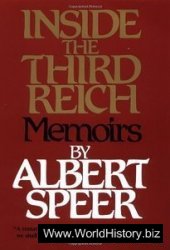The most fundamental problem raised by ancient literature is that of establishing the text. What were the original words composed by the author? This is an area where we never have the luxury of confidence. Much ancient literature, particularly poetry (but also prose oratory, and perhaps even some history) was designed for oral performance, and may have been substantially altered (and/or the variants “normalized”) when transcribed into written form. These issues are most keenly felt in relation to the earliest Greek epics (Homer, Hesiod, and the cycle), but in fact the same problems arise throughout the ancient world. Can we really be sure that the Verrine orations, for example, reflect the words Cicero delivered in court? Or that the Aeneid as we have it is the same text that may have thrilled Maecenas in private recitations? Many Greek tragedies are probably patchworks of original words and actors’ interpolations - but the extent of this phenomenon is highly debated.
At one level, it pays to have a relaxed attitude towards this kind of imponderable: we still have, in each case, (approximately) contemporary testimony, in a form designed to complement the original. So long as we remain aware of the nature of the text that we have - that, for example, the Verrines are Cicero’s self-promoting literary publication rather than a verbatim court transcript - then the problem is relatively minor (on Cicero, cf. Steel, oratory). Romantic conceptions of authorship have lost their grip: it is no longer the spontaneous outpourings of the originating genius that are sought so much as evidence for cultural machinery at work.
The problems, however, run deeper than this. Ancient society had no means of mechanical reproduction: each copy of a text had to be produced laboriously by hand, which made variation an ever-present possibility, even if the same scribe was copying. As a result, our sources for ancient texts tend to conflict with each other. We have two principal sources for ancient literature: manuscripts and papyri (the biggest exception is an anomaly, the corpus of epigrams that survive in massive numbers on stone inscriptions). Manuscripts raise two major issues, aside from that of actually reading crabby medieval handwriting. The first is that the tradition is unrepresentative of the range of ancient literature. What survives of Greek literature reflects the taste of Byzantine and to a lesser extent Baghdadi religious-scholastic communities, to whose labors we owe the fact that anything at all survived the gulf between late antiquity and the Renaissance. Latin was read more widely (throughout western Europe), but again choices were made about what to copy and what not. It is for this reason that we have literally thousands of late-antique Christian texts, filling hundreds of volumes of Migne’s awesome Patrologia Latina and Patrologia Graeca, but only seven complete plays each by Aeschylus and Sophocles. Some of the greatest ancient authors have survived by the slenderest of threads: Catullus was transmitted in a single manuscript, while Sappho and Menander were only minimally represented until the papyrus dump at Oxyrhynchus began to be excavated in the late nineteenth century (see Bowman, papyrology).
The other issue presented by manuscripts is, evidently, that they represent texts that have been copied and recopied numerous times. The possibilities for error are massive. A glance at the foot of any Teubner or Oxford Classical Text of an author for whom multiple copies survive will demonstrate quickly just how many variations can be introduced. Nor is the fame of a particular text proof against this kind of corruption (as paleographers style it). Corruption was just as likely to result from the macho attempts of ancient experts to attempt to “remedy” a canonical text as from the ignorance of a scribe. The textual tradition of Herodotus, for example, shows signs of attempts to rationalize his distinctive Ionic dialect. The Homeric poems became a playground for editors from the early third century onwards: one well-known wag, Timon of phlius, advised the poet Aratus to use old copies of Homer, not those now “corrected” (D. L. 9.113).
For this reason, ancient papyri are not necessarily a surer guide to the original reading. Of course, these texts were written at an earlier stage in the transmission, and hence a priori were less open to corruption. But while papyri sometimes do offer new readings, they can also be highly eccentric. For the novelist Achilles Tatius, for example, the one papyrus covering the problematic beginning of book 2 offers a different order for the episodes from that in the manuscript tradition - different, and much less satisfactory too. Add to this that the texts are always fragmentary, and that the sample is highly limited (almost all are from one locale, viz. the area around Oxyrhynchus in Egypt), and we can quickly see that papyri are more likely to add to our problems than solve them finally.
These issues often have little real impact upon our understanding of historical narrative - but they can affect them substantially. In his seventh book, Herodotus tells us of Kadmos’s capture of the town of Zankle (later Messene): some manuscripts tell us that he captured it “from” the Samians, some say “with” (7.164.1). Even more significant is the passage in book 6, where he mentions the accusation against the Athenian Alcmeonids of treacherous complicity with the Spartans (6.122). This passage is omitted from many of the manuscripts, and so has been taken as “an interpolation, probably a note of some reader” (How and Wells 1912: 115). Whether we accept this passage as Herodotean or not will have a significant bearing upon our interpretation of the text as a whole, in view of some critics’ claims that it shows pro-Alcmeonid tendencies.
The texts that we read in modern editions may well be closer, on balance, to the original than those of 100 years ago, but they are still products of decisions based upon the editor’s own (personal, culturally circumscribed decisions, ideological) ideas about the ancient author’s likely intentions.




 World History
World History









